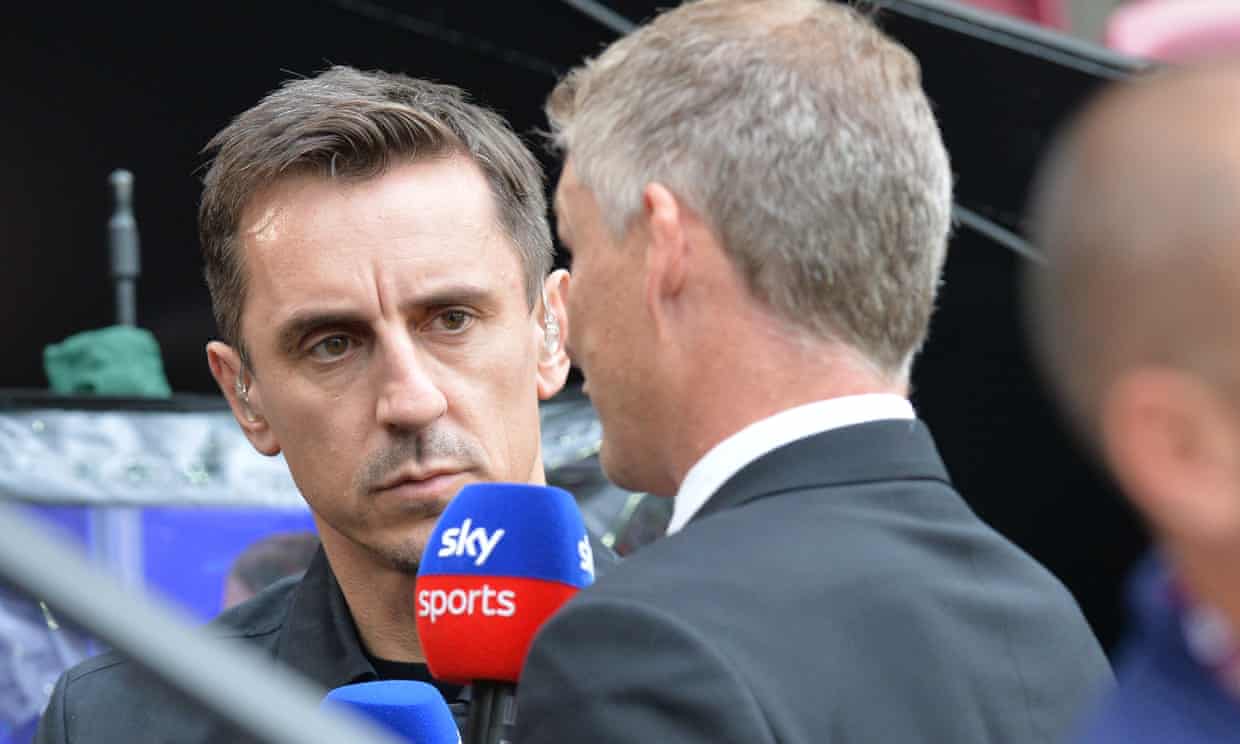
Sportblog
General election beckons but sportsmen and women are staying quiet
Lineker and Sterling are among the few to speak out in this campaign but the trend is a growing political apathy in sport
by Jonathan LiewThree years ago, with the EU referendum on a knife-edge and the Remain campaign struggling to gain traction, No 10 hit on the idea of trying to mobilise support within the world of sport. A well-connected agent called Jon Smith was despatched to try to drum up interest and perhaps secure a few valuable endorsements. As he went, however, he quickly realised he was running against a brick wall.
On learning Leave was doing alarmingly well in the north-east Smith tried to arrange a photo opportunity with Newcastle’s Andros Townsend, Sunderland’s Fabio Borini and David Cameron. Borini was open to the suggestion but Townsend flatly refused and the idea was shelved. It was a similar story elsewhere: virtually nobody within the game was prepared to go on the record. As Smith later wrote in his book The Deal: “Most people in football wouldn’t put their head above the parapet. They felt the campaign had been so onerous they didn’t want to offend potentially half of their club’s fanbase.”
Plenty has changed in Britain since the referendum but one thing has remained resolutely unchanged. As we approach one of the most significant and divisive elections in our lifetimes, the relative silence from the world of sport has been ear-splitting. For so long our escape from the real world, sport in these scalding times feels more like a parallel universe, where we feverishly discuss the Manchester City defence or the Anthony Joshua fight, oblivious to our onrushing authoritarian abyss.
Partly this is because the British have always been slightly squeamish about discussing politics. Perhaps, too, there is a feeling, given the noxious state of our public discourse and the widespread disillusionment with our politicians, there is little to be gained from wading into an unwinnable debate. Even the Southend manager, Sol Campbell, a champion of Brexit and a former prospective Conservative mayoral candidate, politely swerved the election question when I put it to him last week.
And so, as far as endorsements are concerned, we’ve been left with what might generously be described as a supporting cast. In the red corner: Kevin Kilbane, Neville Southall, Peter Reid and the Morecambe midfielder John O’Sullivan. Vocal Corbynites from the 2017 election such as Ronnie O’Sullivan and Joey Barton have been notable for their discretion this time round, which offers as telling an indication of Labour’s travails as any focus group or YouGov poll.
Not that the Conservatives are doing very much better. Amir Khan and Shane Warne have endorsed individual Tory candidates (Gurjit Kaur Bains in Walsall South and Zac Goldsmith in Richmond Park respectively), but perhaps their most high-profile sporting supporter to date is the darts commentator Bobby George. According to the BBC, George will be voting for Boris Johnson, “not because he’s a great politician – he’s the biggest liar out of all of them. But he’s got a bit of charisma.”
Never let it be said, however, that George lacks a firm grasp of the issues. Pressed on the topics that exercised him, he continued: “Refugees, there’s too many. We shouldn’t let them in.” And if these refugees would otherwise be killed in their home countries? “Well, they get killed. That’s it.” There you have it: charisma in action. And needless to say, lack of charisma is hardly an accusation that could be levelled at George himself: not least when I interviewed him a few years ago and he asked which part of China I was from.
In a sense all this points to the declining currency of the celebrity endorsement, a genre that over the years has provided reams of copy while very possibly not shifting a single vote. And so perhaps the most interesting faultline in this election has been not between red and blue but between engagement and apathy: between the vast corpus of professional athletes content simply to keep their hands clean and a small but intriguing minority who – however tentatively or ineptly or despite themselves – find themselves drawn into the fray.
Broadly, this latter group divides into two sub-sections. On the one hand you have such as Raheem Sterling and Gary Lineker, Gary Neville and Keaton Jennings, all impelling some sort of involvement with the democratic process, whether by urging people to register for the vote or making noises of muffled disquiet about Johnson’s nativist rhetoric. On the other you have the “tax grumblers”, vaguely alarmed at the prospect of a Corbyn government.
“What a complete buffoon you really are,” the golfer Ian Poulter wrote in response to a tweet from Corbyn arguing that billionaires would not exist in a fair society. “No one is allowed to be successful,” Poulter added, a touch ironically for a man who has entered 63 major championships without winning any of them. Then we had the Fulham midfielder Harry Arter, who took issue with the same tweet, accusing Corbyn of “lying through the whole Brexit campaign about what he was planning to invest in the NHS”. After thousands pointed out he was actually thinking of Johnson rather than Corbyn, Arter quietly deleted his account.
Herein, perhaps, lies the danger for any lay person with a platform who decides to dabble in politics. In a healthier and more robust society sport would have plenty to say about our problems: from the cancer of racism to the vast inequities in our society, from the erosion of grassroots infrastructure to the very idea of sport as a glue that binds communities together. In these febrile times, however, most have decided to put up the shutters and pretend none of this matters. Frankly, it is hard to blame them.